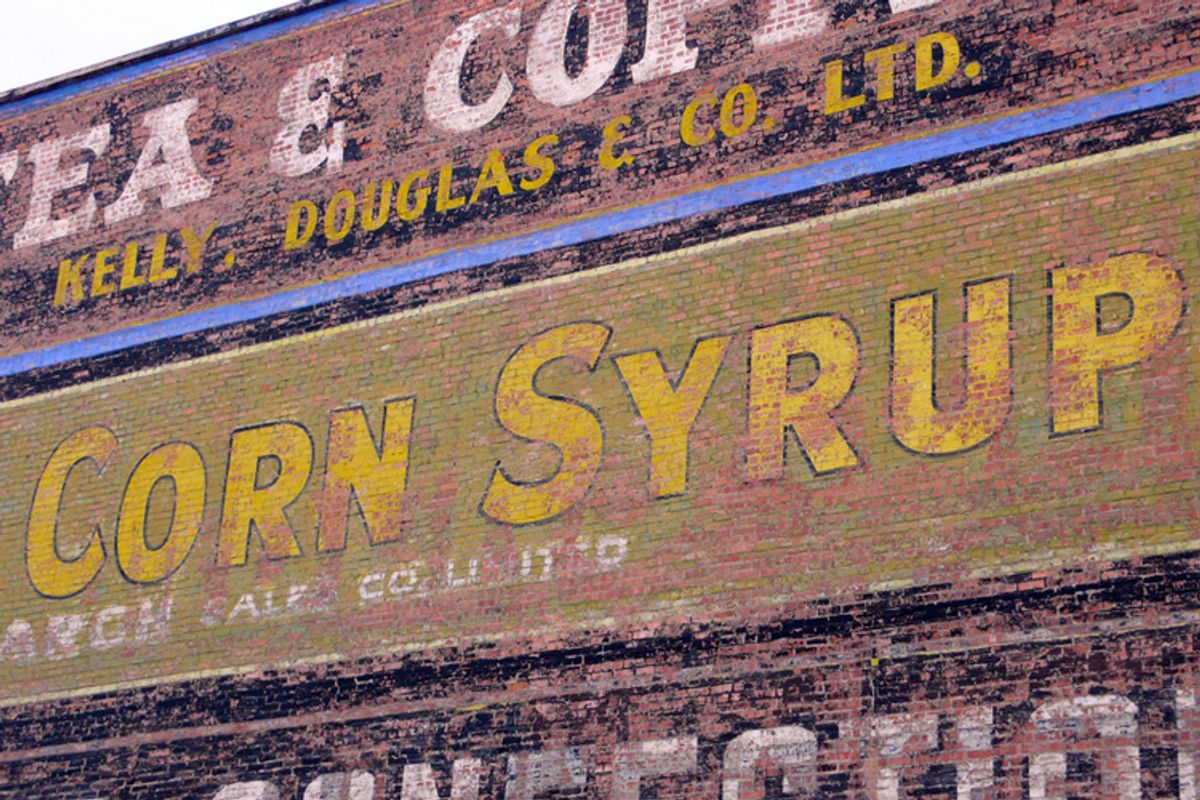High-fructose corn syrup is experiencing a bit of a reputation problem. The sweetener, which is made from corn and used in countless processed foods and soft drinks, has been under attack for several years for its possible health dangers and negative environmental impact. Michael Pollan most famously attacked the syrup in "The Omnivore's Dilemma," as a noxious end-result of over-subsidized corn farming. Corn farming, as Pollan has pointed out, undermines small farmers, depletes soil nutrients and weakens topsoil -- which, in turn leads to more fertilizer use, and further environmental damage.
The health dangers of high-fructose corn syrup (HFCS) are somewhat more debatable -- but this week, a study by researchers at Princeton has been causing a lot of buzz because of its findings about HFCS and obesity. The researchers purport to have found a dramatic connection between high-fructose corn syrup consumption and increased weight gain (compared to sugar).
In very simple terms, researchers fed rats sugar water, rat chow and HFCS mixed with water -- and after eight weeks, found that some of the HCFS drinking rats weighed statistically more than the others. In another phase of the study, researchers found a 27 percent difference in weight gain between HCFS consuming rats and non-HCSF consuming rats.
Why is this important? Researcher Miriam Bocarsly told CNN:
"As far as we're aware, this is the first long-term study of high-fructose corn syrup in animals …. That's important, because you don't eat high-fructose corn syrup once; you eat it every day, probably since you were a child. But you don't see too many studies with humans because you can't keep someone in the lab for 10 years and make them eat high fructose corn syrup."
And yes, those are rather alarming results. But in recent days, the study has come under increased scrutiny from various sources. The LA Times wrote an excoriating post earlier this week criticizing the researchers' questionable science. And NYU professor Marion Nestle did the same in her own blog, pointing out that "although the authors say calorie intake was the same, they do not report calories consumed nor do they discuss how they determined that calorie intake was the same."
More importantly, the debate around whether or not high fructose corn syrup is better or worse than sugar is largely an academic one, and a distraction from the real issue of how to cut down on overall sweetener use. If we're simply substituting one for the other without cutting down on either -- like Pepsi's recently debuted versions of Mountain Dew and Pepsi made with "real sugar" -- then nobody wins, except the companies selling us sweetened products.
In a recent interview with Salon's Sara Breselor, food psychologist Brian Wansink spoke about food's general movement towards increased sweetness, and worried about the increased vilification of the syrup. As richer consumers move to alternatives, he said, high-fructose corn syrup will likely end up in cheaper products aimed at poorer people. "I'm frightened to think what the unintended consequence would be of going back to cane sugar as a sweetener for everything."



Shares